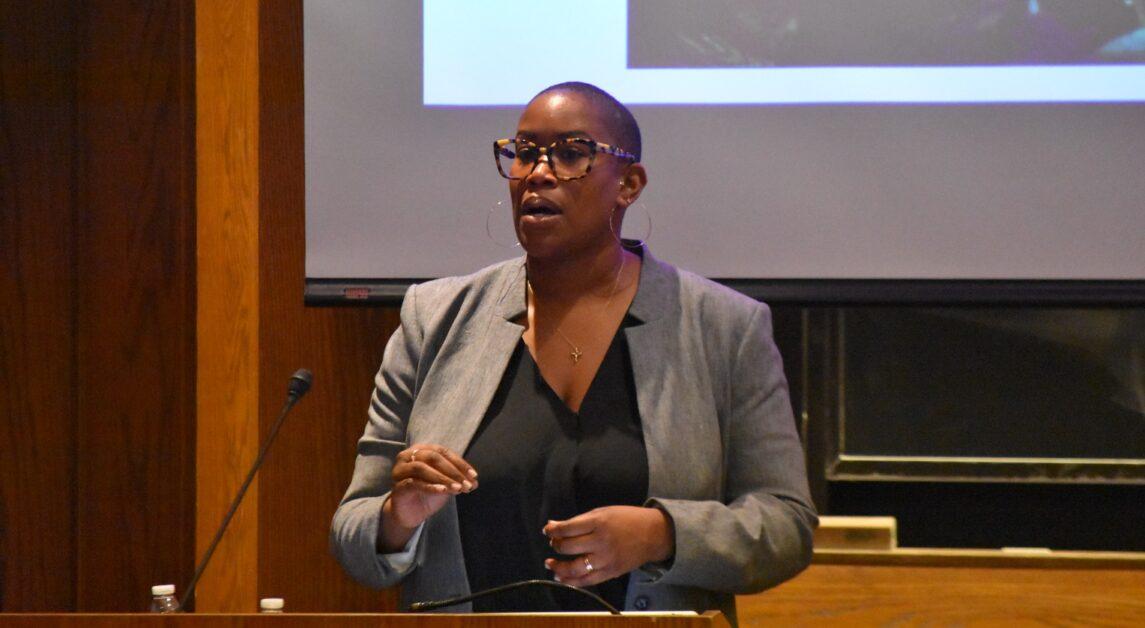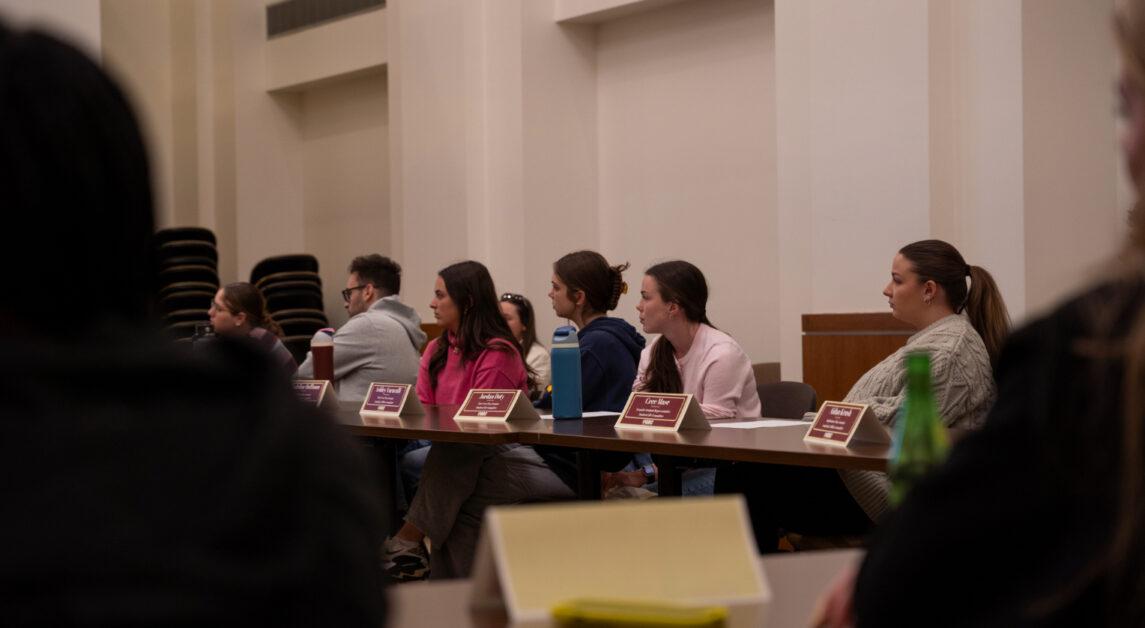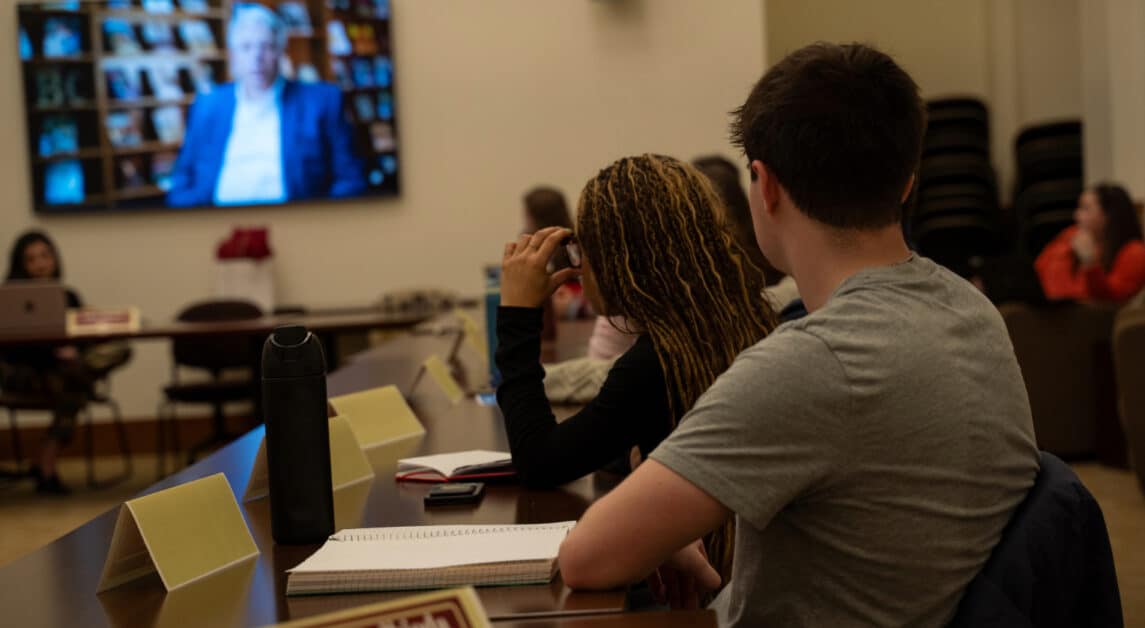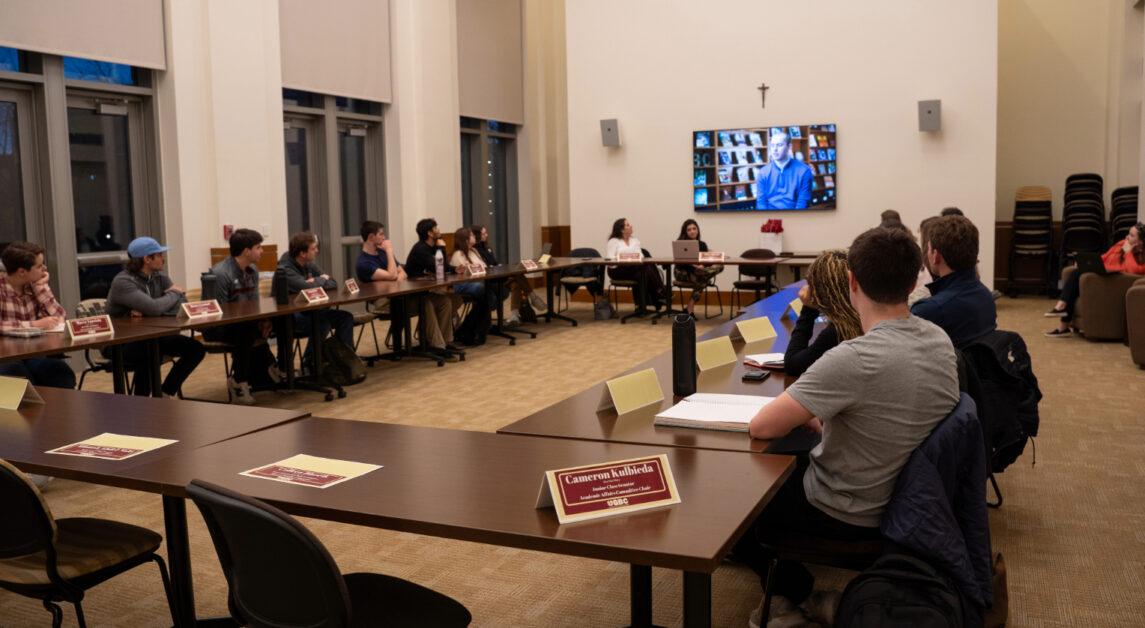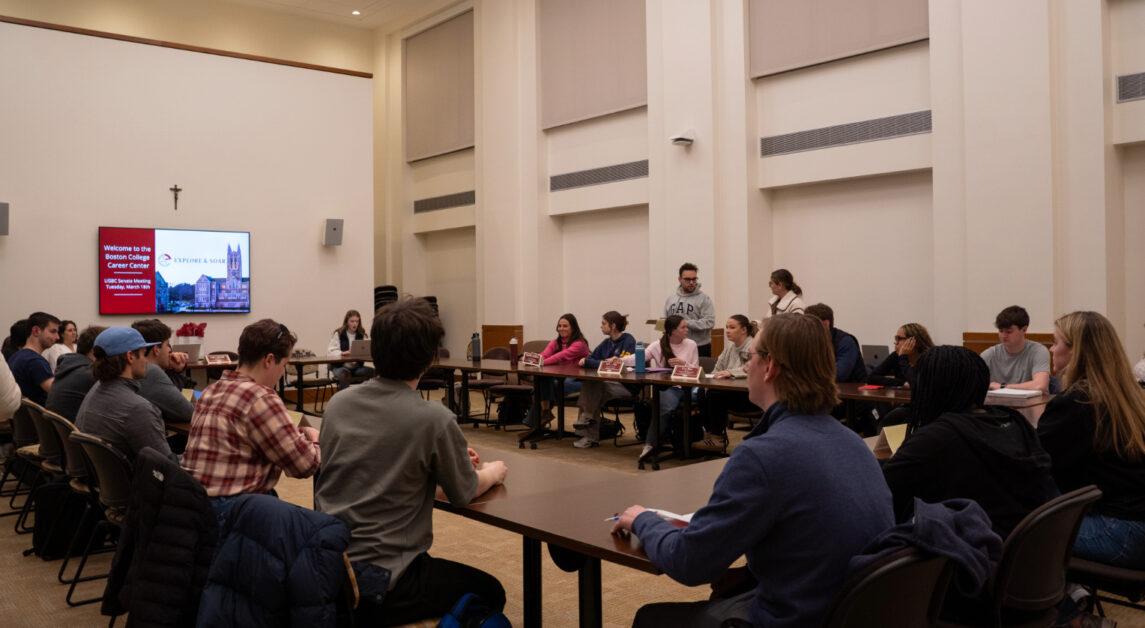“My curiosity is driven by the stories that people tell themselves and the stories that people tell to others,” Clark said.
Clark discussed the impacts of negative media portrayals of African Americans and how through her research she tried to find solutions to these harmful images in the New Directions series, hosted by BC’s African and African Diaspora Studies Program on Wednesday.
Clark grew up in the south, and as the child of an evangelical minister, spent most of her days in church. Her parents, Clark said, were not fond of newspapers, explaining that they often contained negative representations of Black people. But, rather than simply accepting her parents’ beliefs, Clark said she wanted to look further into the matter for herself.
“Rather than accept their positioning against the newspaper, I decided to spend my time digging in to see what I could do about it,” she said.
In 2010, Clark, who was working in media at the time, said she came across an article that would become the focal point of her research.
“I came to a particular story one day on the last day of my initial newsroom career,” Clark said. “This was from August 10, 2010, and the story is titled ‘How Black People Use Twitter.’”
The story, written by then-technology writer for Slate magazine Farhad Manjoo, bothered Clark, who said she disagreed with Manjoo’s framing of Black people on social networking sites.
The study of Black Twitter became the driving force of her research, Clark said.
“[In the book] I talk about the ways that Black people have built community on … Twitter and have used it to present counter narratives of the way our reality is told in mainstream news media,” Clark said.
While Black media portrayals prompted her research, the inspiration behind Clark’s academic framework was James Baldwin’s 1963 essay, which she said was crucial in providing a structure to discuss the African American experience.
“James Baldwin’s lecture is a critique of the social purpose of education and an exhortation to educators who struggle against the forces of oppression,” Clark said.
Clark said she used Baldwin’s three types of resistance as inspiration to address seven contentious spirits that she identified, which work to dehumanize and demoralize African American people and contribute to white dominance.
“My seven are fatigue, lack of empathy, anti-intellectualism, division, codified anti-Blackness, plastic representation, and comfort and complacency,” she said.
In identifying and labeling these seven “demons,” Clark said she is able to recognize and potentially move past the challenges and adversity she faces.
“The scriptures talk about how, in order to cast out demons, you have to know the names of the demons,” said Clark. “You have to label the problems that you encounter.”
Clark said that in order to “cure” the inequality and hate circulating throughout the world, we need to stand up against it.
“It is up to us and our formal roles as teachers and students, and our less hierarchical understandings of one another as common learners, to be prepared to go for growth to attempt to correct so many generations of bad faith and cruelty in the classroom and society.”
Featured Image by Molly Burns / For the Heights

